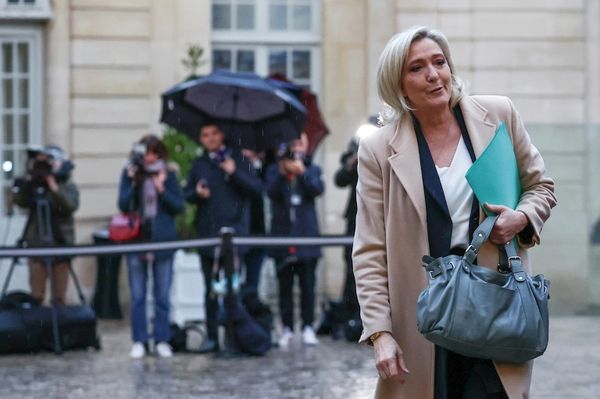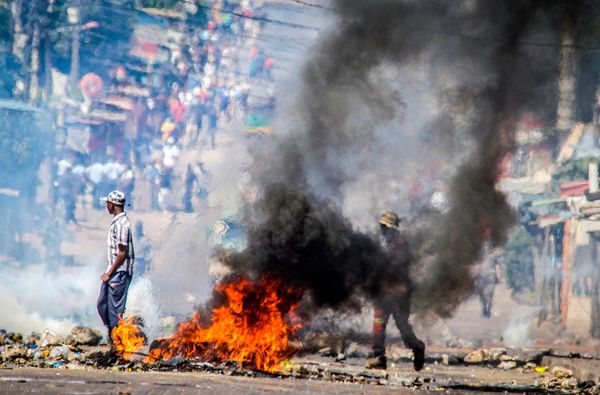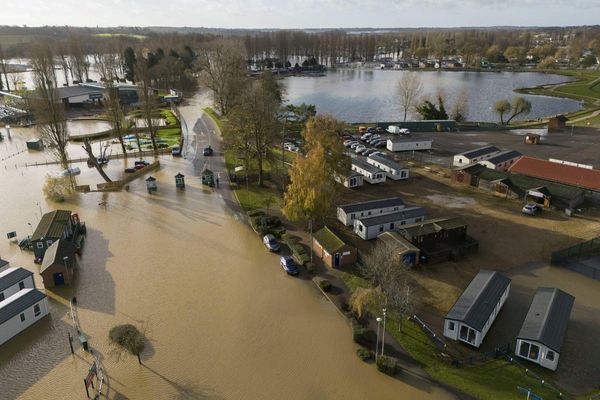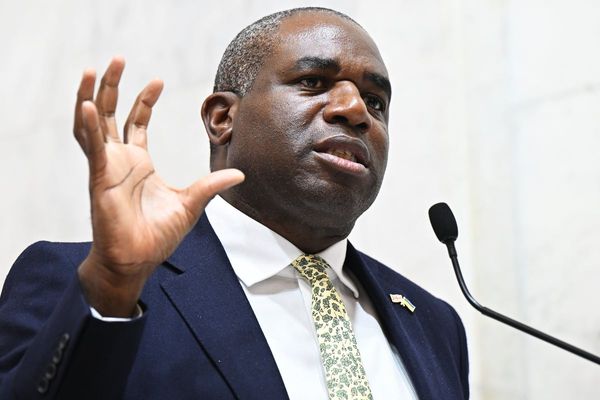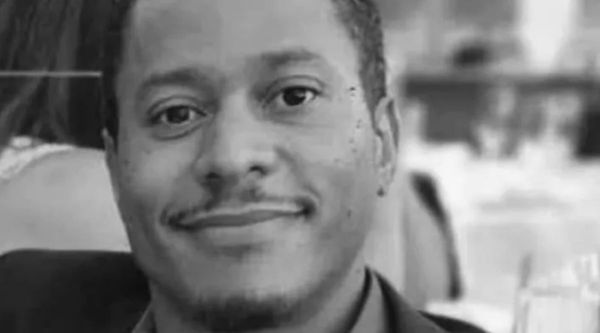Today in History for Feb. 19:
On this date:
In 1377, John Wycliffe went on trial in London's St. Paul's Cathedral after arguing against the sale of indulgences, the worship of saints and the veneration of relics. He was never convicted as a heretic.
In 1473, the founder of modern astronomy, Nicolaus Copernicus, was born in Poland. His theory established the Sun as the centre of the planetary system.
In 1732, religious houses in New France were forbidden to shelter fugitives from justice.
In 1878, Thomas Edison was issued a U.S. patent for his phonograph, less than two months after he applied. In the autumn of 1877, Edison had successfully tested a crude cylinder phonograph that recorded his voice on a piece of tinfoil wrapped around a cylinder. He had shouted into the mouthpiece of the instrument the nursery rhyme "Mary Had a Little Lamb." When he played back the recording, and a recognizable reproduction of his voice emerged, Edison was quoted as saying: "I was never so taken aback in my life." Before the patent was even granted, the Edison Speaking Phonograph Company had been formed to control the manufacture and exhibition of the instruments. However, the phonograph's commercial value at the time lay solely in its appeal as a novelty.
In 1889, Saskatchewan Metis leader Gabriel Dumont was pardoned by the federal government for his actions during the 1885 Northwest Rebellion led by Louis Riel.
In 1897, in Stoney Creek, Ont., Adelaide Hunter Hoodless formed the Women's Institute, a group that spread throughout the English-speaking world. Hoodless was jolted out of her comfortable middle-class existence when her infant son died after drinking impure milk. She became devoted to educating women for motherhood and household management. Hoodless also helped found the National Council of Women, the Victorian Order of Nurses and the national YWCA. She died in Toronto on her 53rd birthday in 1910.
In 1906, Michigan doctor William Kellogg formed the Battle Creek Cornflake Company to make a breakfast cereal he had developed for patients suffering from mental disorders.
In 1920, shareholders of the Grand Trunk Railway ratified its sale to the federal government. It became part of the Canadian National Railway system.
In 1930, the Quebec legislature rejected a bill to admit women to the practice of law.
In 1945, U.S. Marines landed on the Japanese-held island of Iwo Jima during the Second World War. The island was eventually taken on March 26 at a cost of more than 6,800 American lives.
In 1959, an agreement was signed by Britain, Turkey and Greece granting Cyprus its independence.
In 1960, Queen Elizabeth became the first reigning British monarch in more than a century to have a baby, Prince Andrew.
In 1968, the federal Liberal minority government lost a tax vote in the Commons. The Opposition Conservatives demanded, without success, that the government resign. On Feb. 28, the Liberals won a vote of confidence.
In 1970, Canada claimed jurisdiction over all waters of the Northwest Passage, and between the islands of the Arctic archipelago.
In 1974, the National Hockey League and World Hockey Association reached an out-of-court settlement in their litigation. The agreement, signed in Philadelphia, struck down the NHL's reserve clause, which bound a player to a team for life unless he was traded or released.
In 1983, Joe Clark resigned as Conservative leader, although he remained in control of the party until successor Brian Mulroney was chosen at a June convention.
In 1993, two British explorers became the first to cross the Antarctic on foot without outside support. Sir Ralph Fiennes and Dr. Michael Stroud dragged their supplies on sledges weighing 196 kilograms across more than 2,100 kilometres.
In 1996, Canada's new $2 coin, dubbed the "toonie," is introduced.
In 1997, Deng Xiaoping, China's paramount leader, died at age 92. He was the architect of China's economic reforms in the 1980s, but also ordered the bloody 1989 crackdown on pro-democracy protesters in Tiananmen Square.
In 2001, the Canada-U.S. Automotive Agreement expired after 36 years. The 1965 Auto Pact provided a large measure of free trade in vehicles and parts between the two countries and was a major boost to the Canadian auto industry. It was allowed to lapse after the World Trade Organization ruled it violated international trade laws.
In 2003, an Iranian military plane carrying 302 members of the elite Revolutionary Guards crashed in the mountains of southeastern Iran, killing all onboard in Iran's worst aviation disaster.
In 2003, a German court sentenced Moroccan Mounir El Motassadeq, 28, to 15 years in prison after being convicted of accessory to murder in the world's first trial over the Sept 11, 2001, attacks.
In 2004, a fierce blizzard forced Nova Scotia and P.E.I. to declare a state of emergency; Halifax received a record 95.5 cm of snow.
In 2007, Gov. Gen. Michaelle Jean presented awards for military bravery to six soldiers who performed extraordinary deeds under fire in Afghanistan. It was the first time these decorations for military valour were awarded since they were created in 1994.
In 2008, the B.C. government introduced North America's first full-fledged carbon tax in an effort to curb greenhouse gases.
In 2008, Fidel Castro formally resigned as president of Cuba after 49 years, a year-and-a-half after temporarily relinquishing power to his brother Raoul. His resignation effectively ended the longest rule in the world for a head of government.
In 2009, U.S. President Barack Obama met Prime Minister Stephen Harper in Ottawa on his first foreign visit since becoming president.
In 2010, Pope Benedict approved sainthood for Montreal’s Brother Andre, the founder of St. Joseph’s Oratory who was credited with miracle healings before his death in 1937. Formal canonization took place on Oct. 17 in Rome.
In 2010, all 64 young students, including 42 Canadian high school and university students, and crew aboard the Nova-Scotia-based tall ship, Concordia, were saved after the ship capsized on Feb. 17 about 550 km southeast of Rio de Janeiro, Brazil.
In 2010, Jon Montgomery, the fast-talking, energetic auctioneer and car salesman from Russell, Man., won the gold medal in the men's skeleton race at the Vancouver Olympics.
In 2010, Tiger Woods made his first public appearance since crashing his car in late 2009, which set off a tabloid scandal and revelations of rampant extramarital affairs. Reading a televised 13-and-a-half-minute statement, Woods apologized for cheating on his wife, but did not reveal the scope of his infidelity or when he would return to golf.
In 2013, Eugene Whelan, a folksy farmer in a green Stetson who spent a dozen years (1972-84) as Canada’s flamboyant minister of Agriculture, died from complications from a stroke. He was 88.
In 2018, Canadians Justin Kripps and Alex Kopacz tied with the German team to win gold in the two-man bobsled event at the Pyeongchang Olympics.
In 2018, nearly four years after the Chibok (Nigeria) abduction, Islamic extremist group Boko Haram kidnapped another 111 schoolgirls from the nearby town of Dapchi. (On March 21, 105 girls were released after negotiations; five died during the ordeal).
In 2019, seven children, all members of a Syrian family who arrived in Canada in September of 2017, died in an early morning fire that witnesses said quickly engulfed a home in a Halifax suburb. The children ranged in age from three months to 14-years-old. On the 23rd, community members and dignitaries gathered to air their grief at a public funeral in Halifax for the children, whose father was left with extensive burns.
In 2019, infielder Manny Machado agreed to a 300-million-dollar US, 10-year deal with the San Diego Padres. It was the biggest contract ever for a free agent.
2019, Brooklyn Dodgers pitcher Don Newcombe died at the age of 92 after a lengthy illness. He was one of the first black players in the major leagues and went on to win the Rookie of the Year, Most Valuable Player and Cy Young awards and a World Series with the Dodgers.
In 2020, Canadian freestyle moguls team member Brayden Kuroda of Penticton, B.C., died suddenly at the age of 19. Freestyle Canada did not release a cause of death, but CEO Peter Judge called it an "immeasurable loss."
In 2020, the Ontario government asked 3M Canada to investigate complaints that the province's new licence plates are virtually unreadable at night.
In 2020, a 43-year-old man killed nine people in racially motivated shootings at two shisha bars in the German town of Hanau, then killed his mother and himself. According to police the attacker left rambling texts and videos in which he espoused racist views, called for genocide and claimed to have been under surveillance since birth.
In 2021, the United States re-joined the Paris climate accord. The move became official almost a month after U.S. President Joe Biden told the United Nations that America wanted back in. The Trump administration announced its withdrawal from the Paris accord in 2019, but the move didn't become effective until November 4th, 2020 — the day after the U.S. presidential election — because of provisions in the agreement.
In 2021, it was announced that Prince Harry and his wife Meghan will remain the Duke and Duchess of Sussex, but Buckingham Palace said they would not be returning to royal duties.
In 2021, Pfizer and BioNTech said their COVID-19 vaccine can now safely be stored in regular freezers for up to two weeks, rather than the ultra-low temperature freezers that have made shipping and distributing the vaccine incredibly difficult.
----
(The Canadian Press)
The Canadian Press
